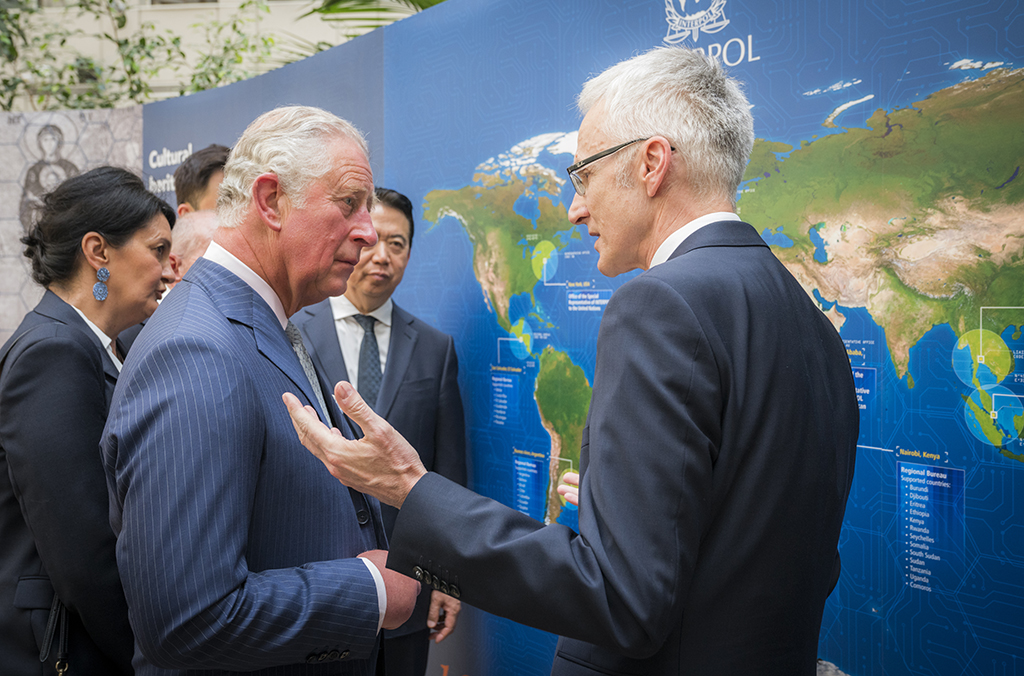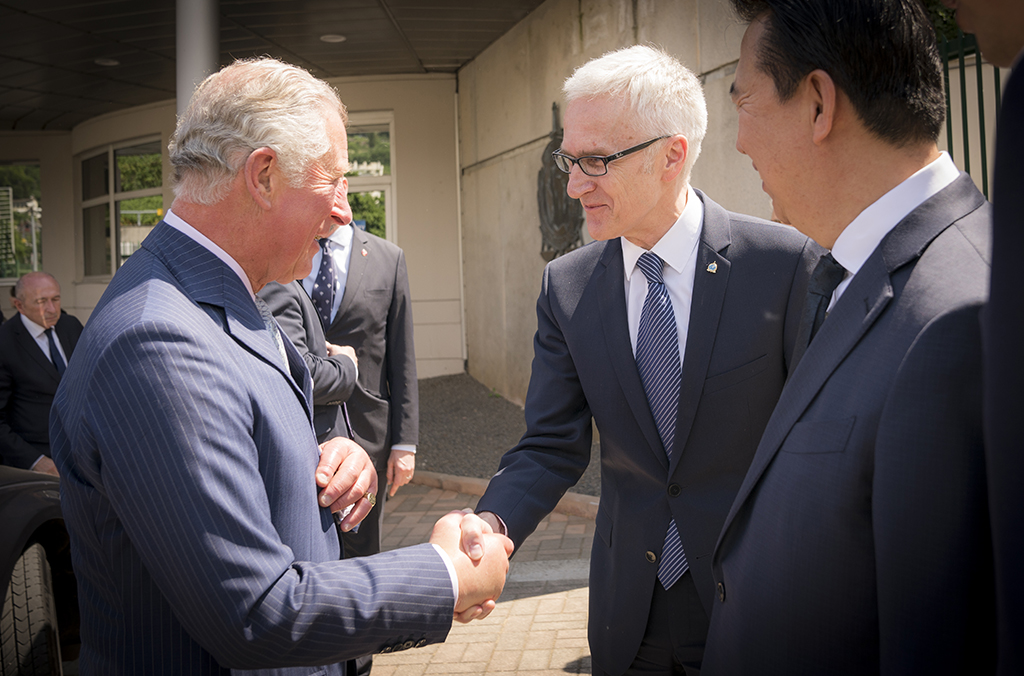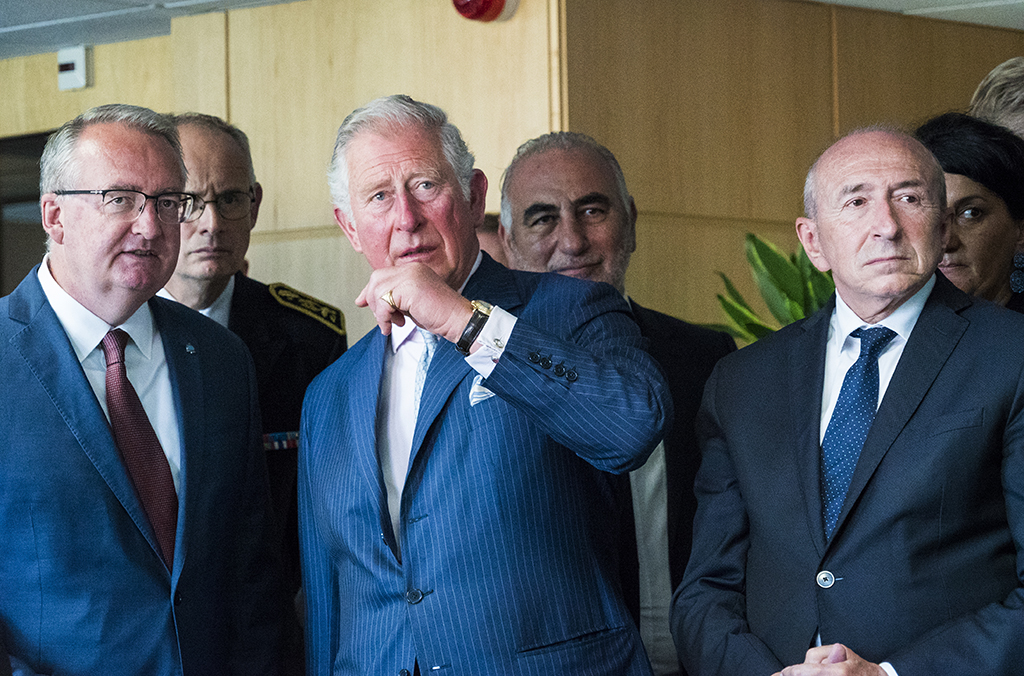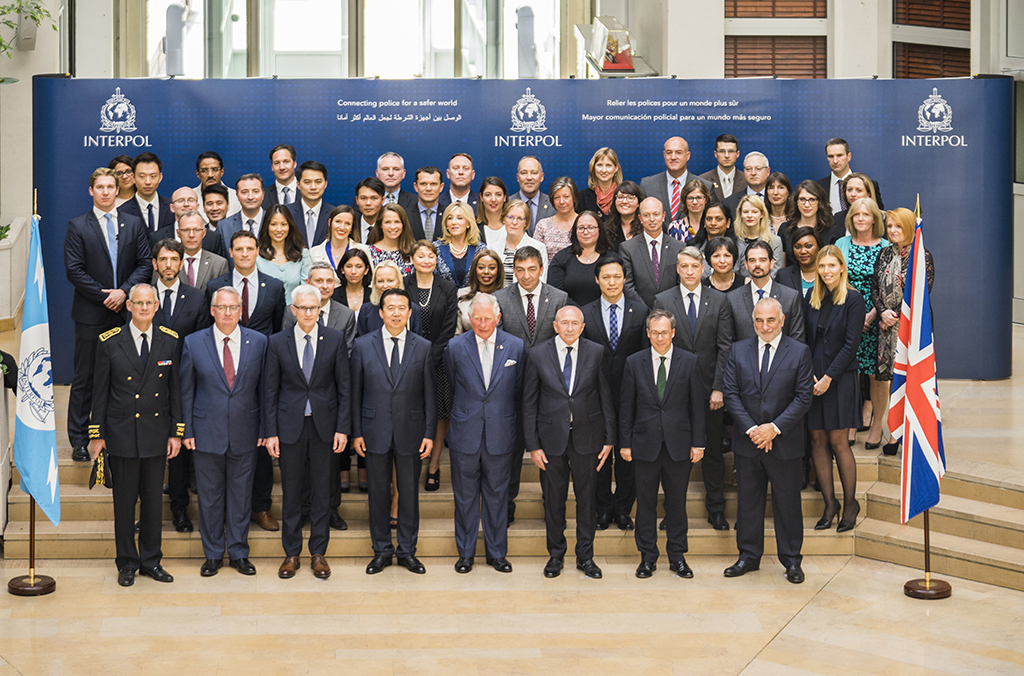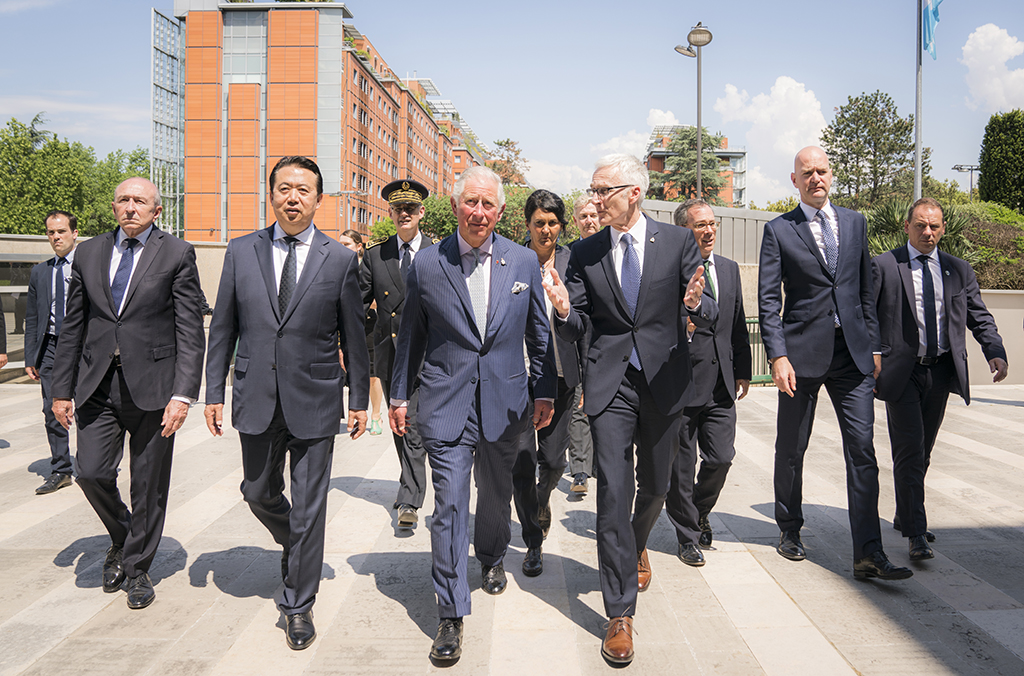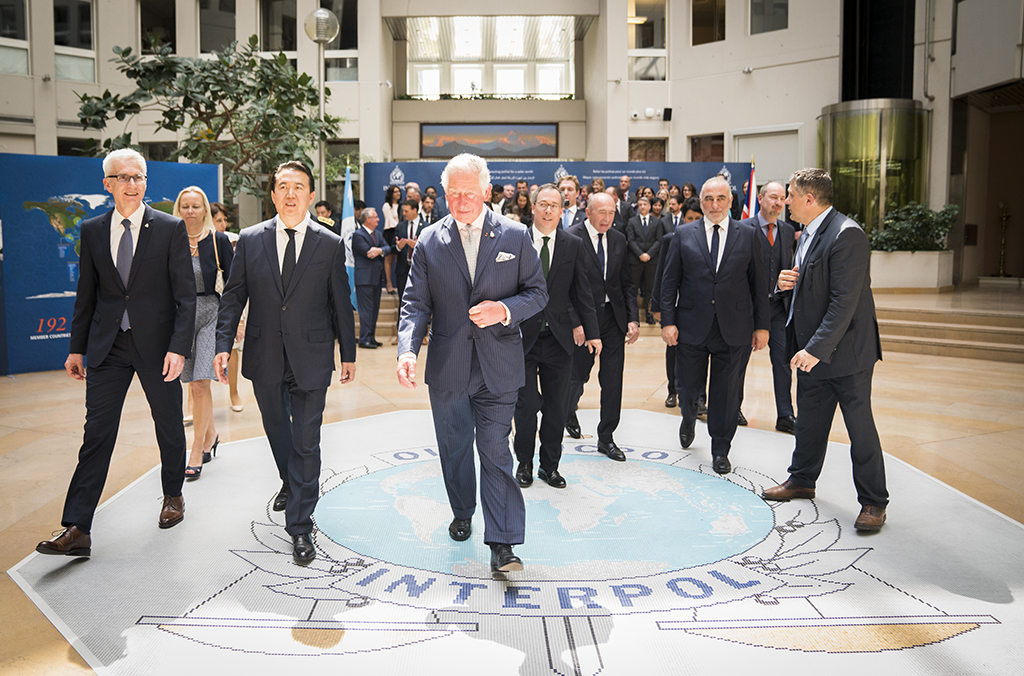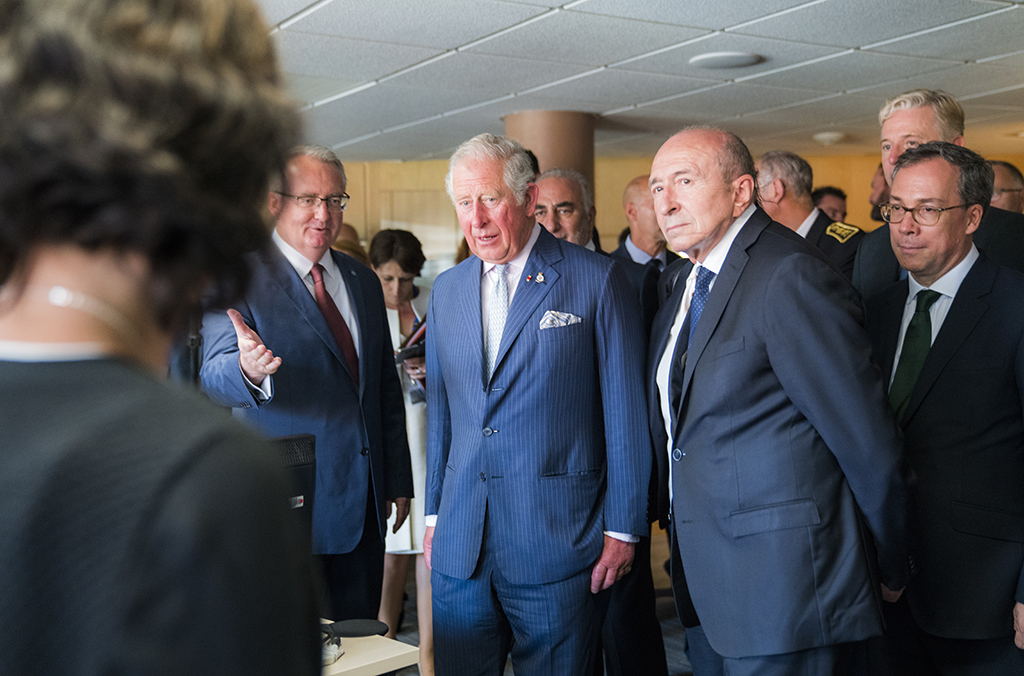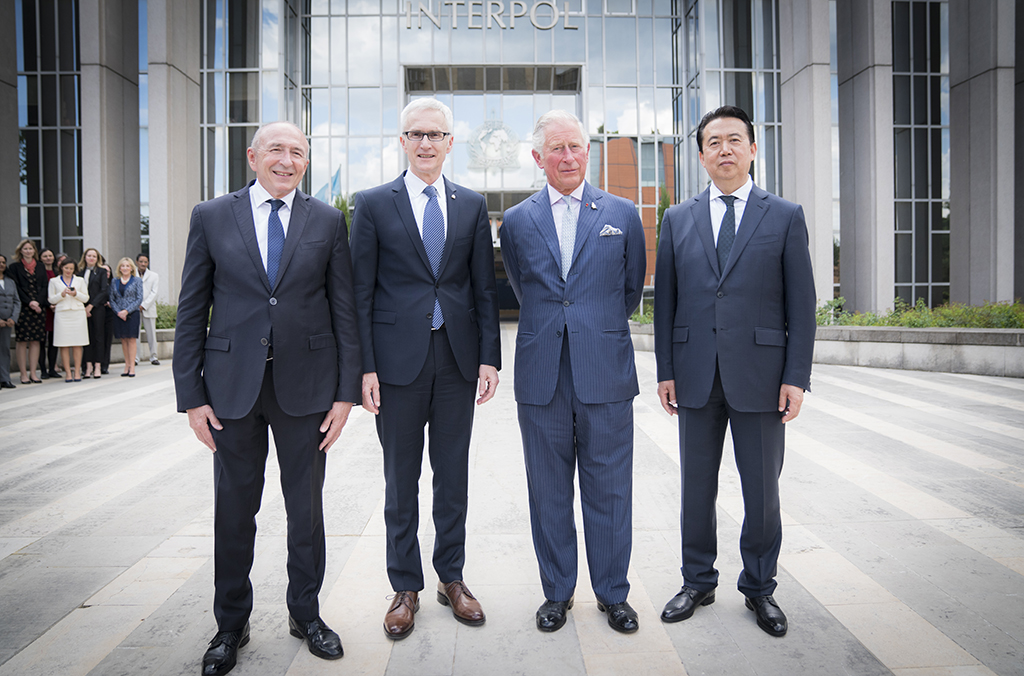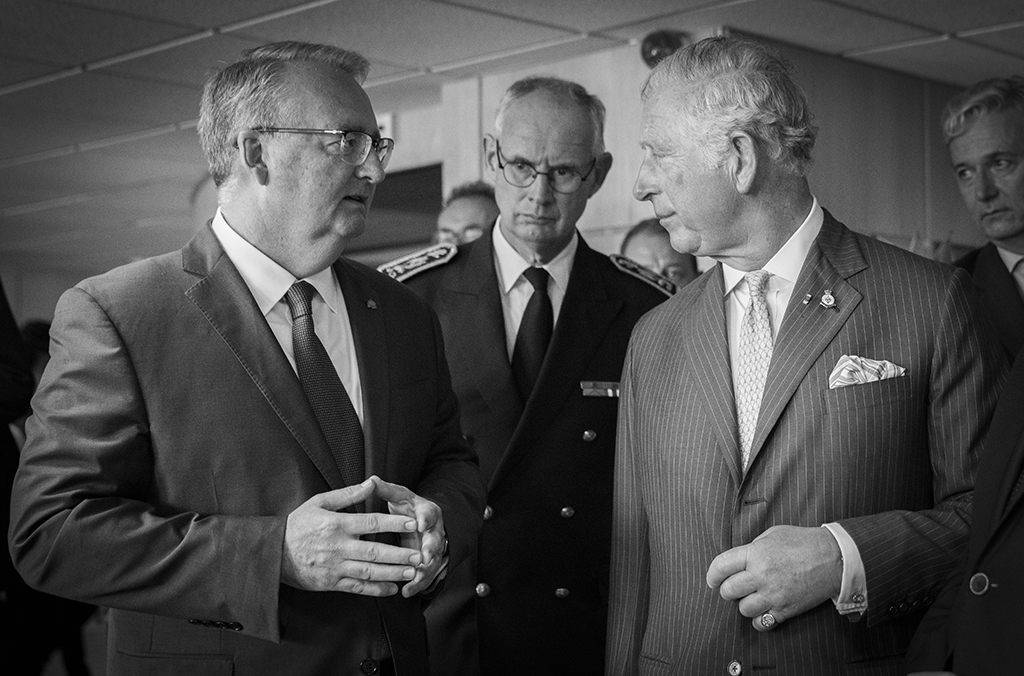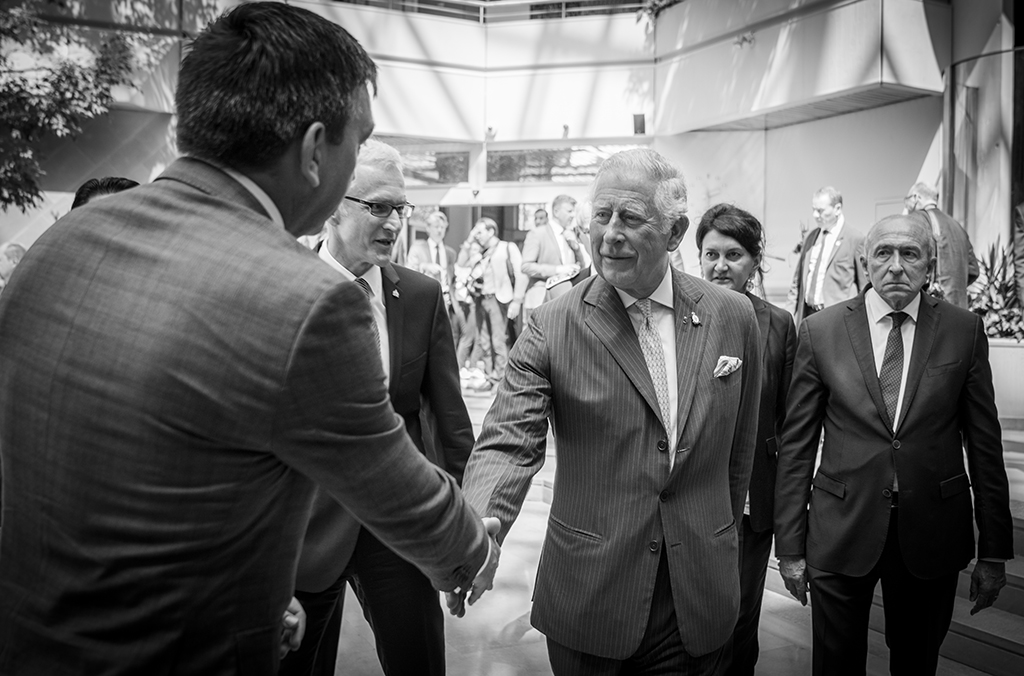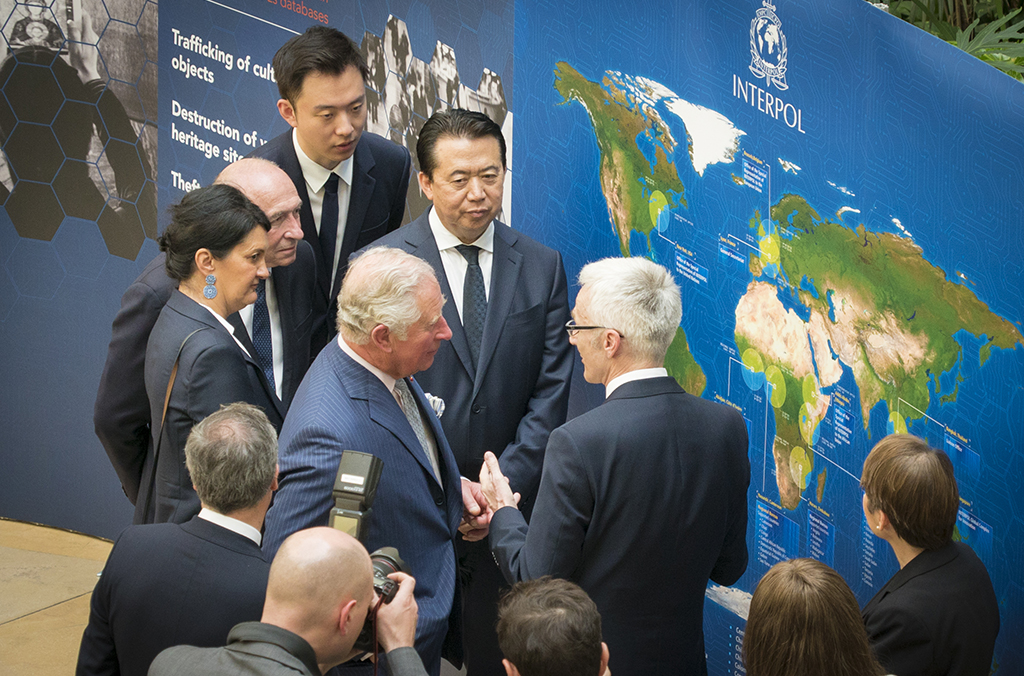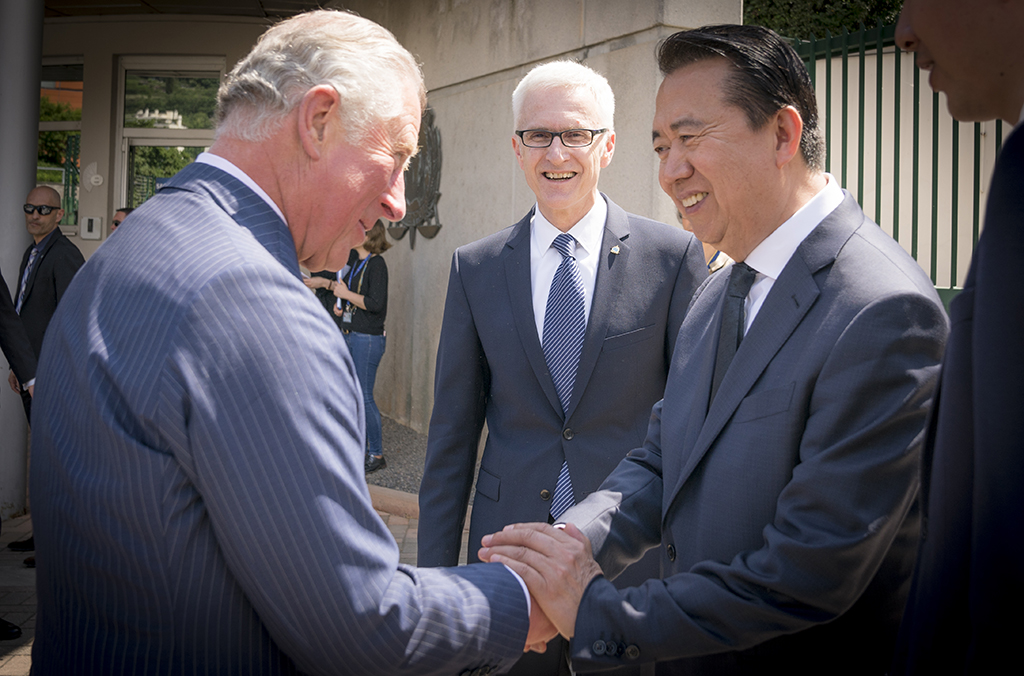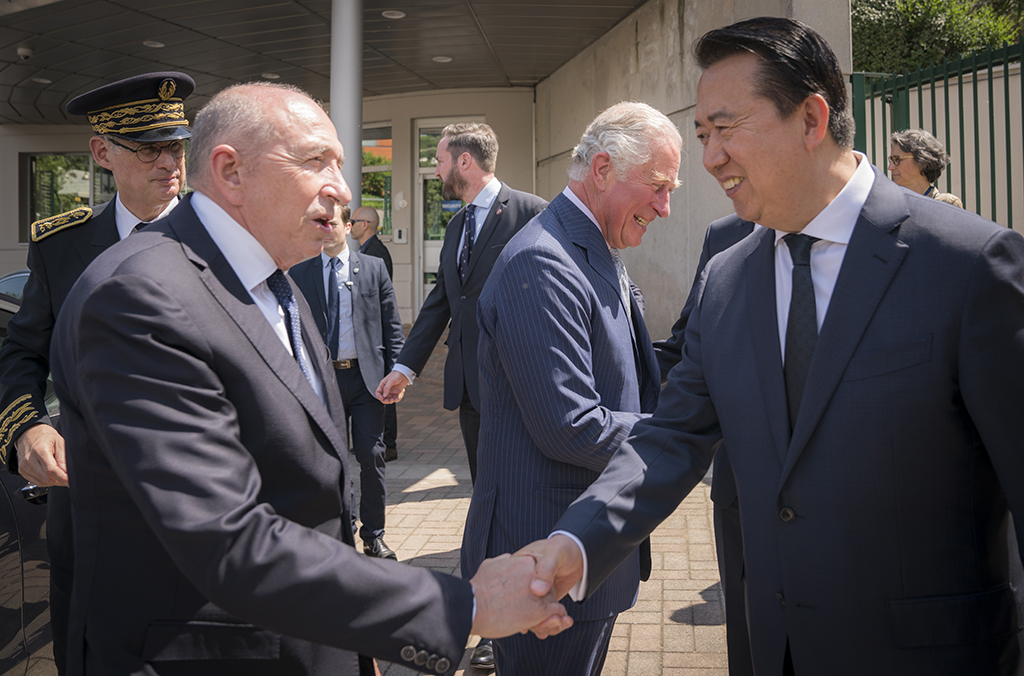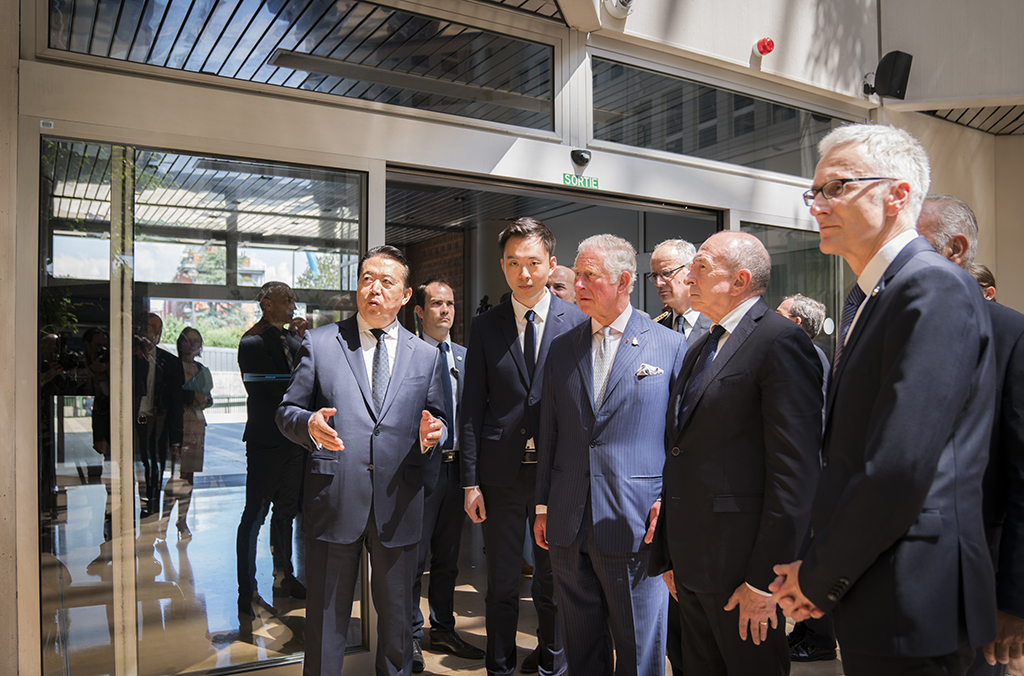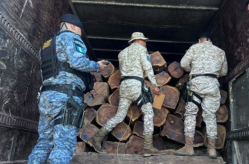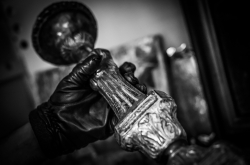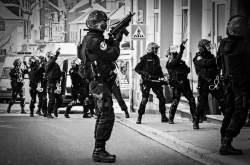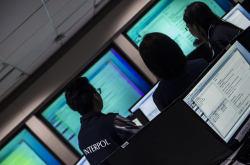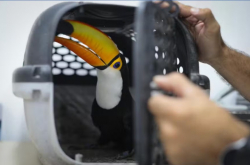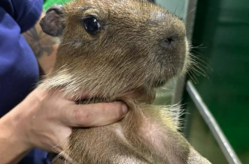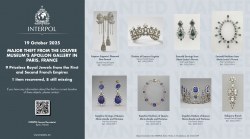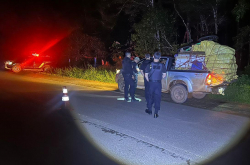LYON, France – The Prince of Wales was briefed on INTERPOL’s activities in combating human trafficking, environmental crime and protecting cultural heritage during his visit to the Organization’s General Secretariat headquarters in Lyon, France.
INTERPOL President Meng Hongwei and Secretary General Jürgen Stock welcomed His Royal Highness who was accompanied by French Minister of the Interior Gérard Collomb, the UK Ambassador to France Lord Edward Llewellyn, Mayor of Lyon Georges Képénékian and Stéphane Bouillon, Préfet of the Auvergne-Rhône-Alpes region.
The Prince heard how in April, nearly 350 potential victims of sexual exploitation and forced labour were rescued in the INTERPOL-coordinated operation Libertad targeting human trafficking in the Caribbean, Central and South America.
With the past decade seeing a significant increase in the trafficking of cultural objects from countries in the Middle East affected by armed conflict, INTERPOL’s work in combating the illicit trade in stolen Iraqi and Syrian cultural property has been recognized by the UN Security Council.
His Royal Highness was also briefed on how INTERPOL’s global network and system of alerts has assisted member countries locate and arrest fugitives wanted for environmental and wildlife crimes.
These include Lodu Dime, a Nepalese tiger trafficker wanted in connection with the seizure of five tiger skins and 114 kg of tiger bones, and brothers Chancy and Patrick Kaunda from Malawi who are suspected of attempting to export 781 elephant tusks worth an estimated USD 5.8 million.
During his visit the Prince paid his respects at the recently inaugurated INTERPOL memorial in honour of law enforcement officers worldwide who have lost their lives in the line of duty. A second commemorative stone plaque has been placed at the INTERPOL Global Complex for Innovation in Singapore.
His Royal Highness and the delegation also toured INTERPOL’s Command and Coordination Centre which provides round-the-clock support for law enforcement in INTERPOL’s 192 member countries.
The UK and France have a long history of cooperation with INTERPOL, dating back more than a century. Both countries took part in the first International Criminal Police Congress held in Monaco in 1914, where the original idea of INTERPOL was born.




